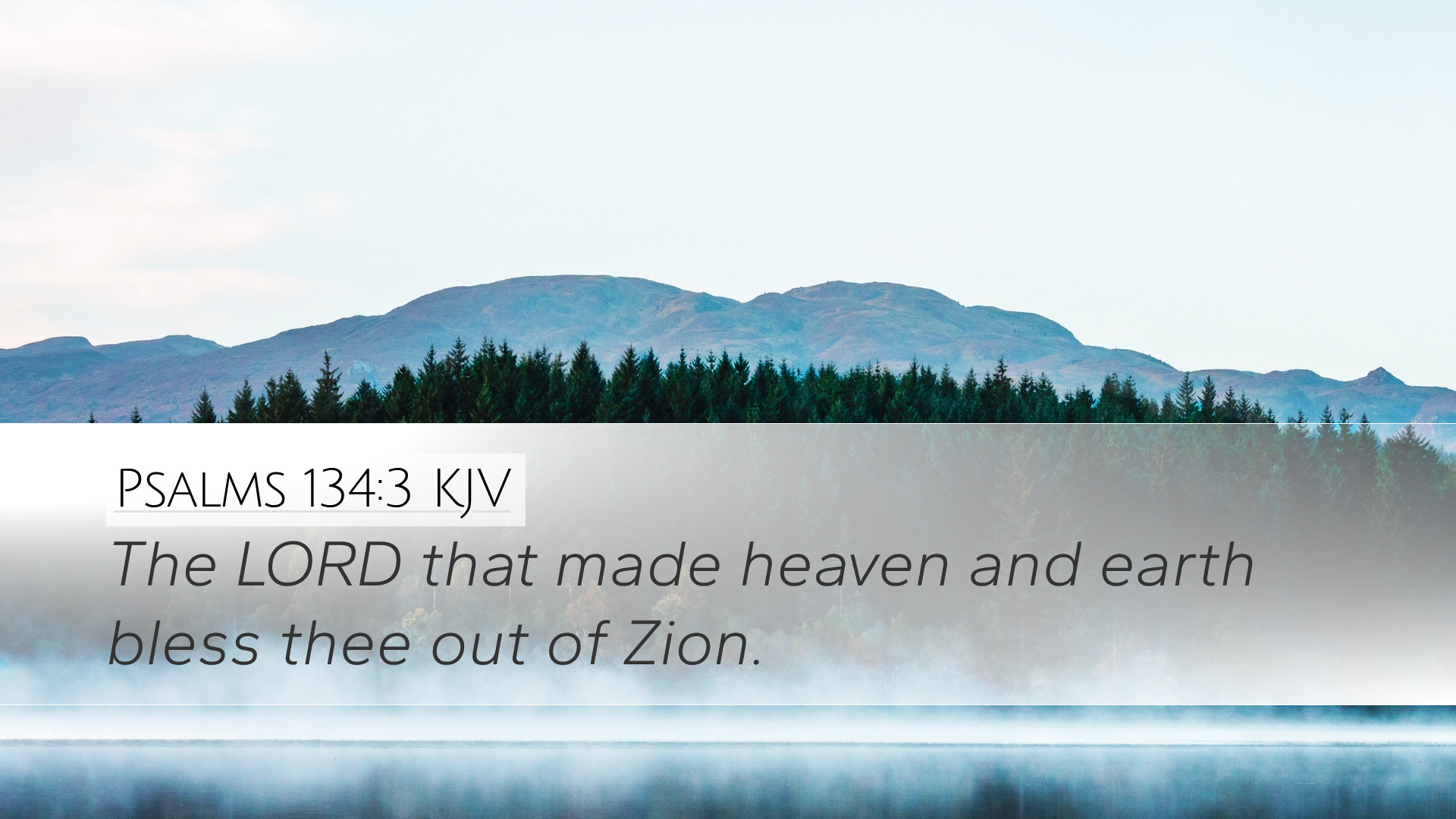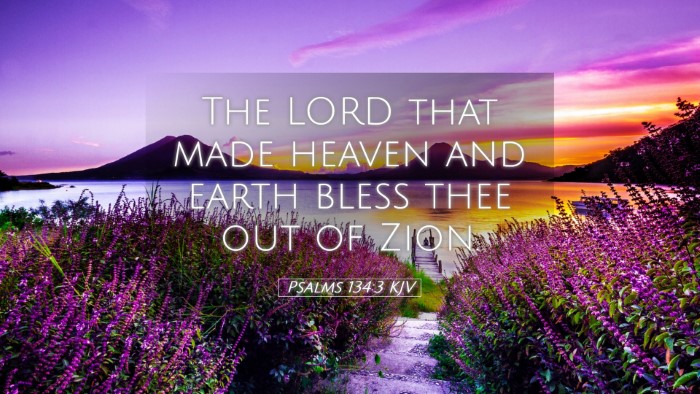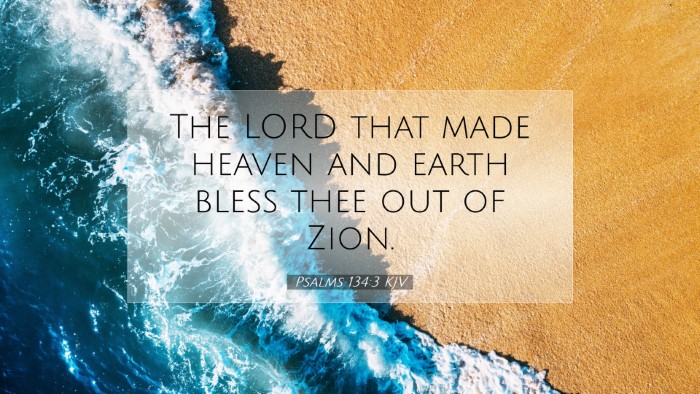Psalms 134:3 Commentary
Bible Verse: Psalms 134:3 - "The Lord that made heaven and earth bless thee out of Zion."
This succinct verse encapsulates a profound plea for divine blessing, invoking the Creator's name while emphasizing the sanctity of Zion as a source of blessing.
Contextual Understanding
The Book of Psalms serves as a rich tapestry of prayers, hymns, and reflections within the Old Testament. Psalms 134 is categorized among the "Songs of Ascents," which were likely sung by pilgrims as they ascended to Jerusalem, particularly during feasts. This psalm, being the last in this collection, could be interpreted as a closing invocation or blessing for the congregation.
Exegesis of Psalms 134:3
Matthew Henry's Commentary: Henry emphasizes the significance of Zion—the city of God—not just as a geographical location but as a spiritual symbol of God’s presence and blessings. The psalmist calls for blessings that originate from this holy place, indicating that true prosperity and divine favor flow from a relationship with God and assembly in His sanctuary.
- The Lord that made heaven and earth: The declaration of God as the Creator establishes His sovereignty and omnipotence. It serves as a reminder that those who seek blessings must acknowledge the source of all creation.
- Bless thee out of Zion: This phrase connects the blessings with God’s chosen dwelling place, highlighting the importance of community worship and the power of collective prayer in invoking divine grace.
Albert Barnes' Notes: Barnes notes that the phrase “bless thee” denotes a heartfelt desire for God’s favor. The psalm evokes the idea of priests or worshippers uplifting their voices to God, appealing for His mercy and providence. The blessings invoked here encompass all aspects of life—from spiritual to material—a holistic conception of welfare.
- Theological Implication: God is portrayed as not only a Creator but also as a provider of blessings, which implies His personal involvement in the lives of His creation.
- The Role of Zion: The geographical and spiritual significance of Zion underscores the importance of the collective faith community, representing unity among believers in seeking God's favor.
Adam Clarke's Commentary: Clarke elaborates on the significance of asking for blessings as an act of worship. He dissects the verse, believing that it serves as evidence of the psalmist’s understanding that blessings should emanate from Zion, a place signifying God’s presence and strength, especially in times of communal worship and need.
The Role of Blessing in the Biblical Context
The broader theme of blessing permeates the Scriptures, with divine blessings being central to the covenantal relationship between God and His people. In Psalms, blessings are often tied to obedience, faithfulness, and the acknowledgment of God's providential guidance.
- Old Testament Foundations: The concept of blessing pervades Old Testament literature, evident from God's covenant with Abraham, where blessings are both a promise and a responsibility.
- Connection to Worship: This psalm exemplifies how communal worship acts as a conduit for blessings, drawing on the collective faith of God’s people.
Applications for Pastors and Theologians
In the context of pastoral practice, Psalms 134:3 offers a rich source of reflection concerning the power of communal prayer and worship in inviting God’s blessings. It encourages pastors to lead their congregations with an emphasis on both dependence upon God’s creative power and the unifying strength found in community worship.
Pastoral Insights:
- Encouragements for Congregational Worship: Highlight the importance of coming together in worship as a community, fostering a collective heart for seeking God’s favor.
- Preaching on God's Sovereignty: Utilize this scripture to remind the congregation about God's authority over creation and His role as the ultimate provider of all blessings.
Theological Considerations:
- Exploring Divine Blessing: Engage in discussions surrounding the nature of God's blessings—spiritual vs. material, immediate vs. eternal.
- Understanding Community in Faith: Emphasize how community worship can serve as a means to experience God’s presence significantly.
Conclusion
Psalms 134:3 stands as a powerful reminder of the necessity of seeking blessings from the Lord who created the heavens and the earth. The acknowledgment of Zion reinforces the necessity of gathering within the community of faith, allowing for a communal approach to seeking divine favor as they align themselves with God’s intentions. In today’s context, pastors, scholars, and believers alike are reminded of the transformative potential of worship, where the stature of God as our Creator invites us to humbly request His blessings upon our lives.


